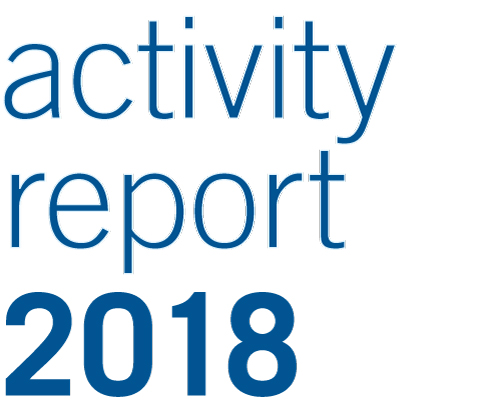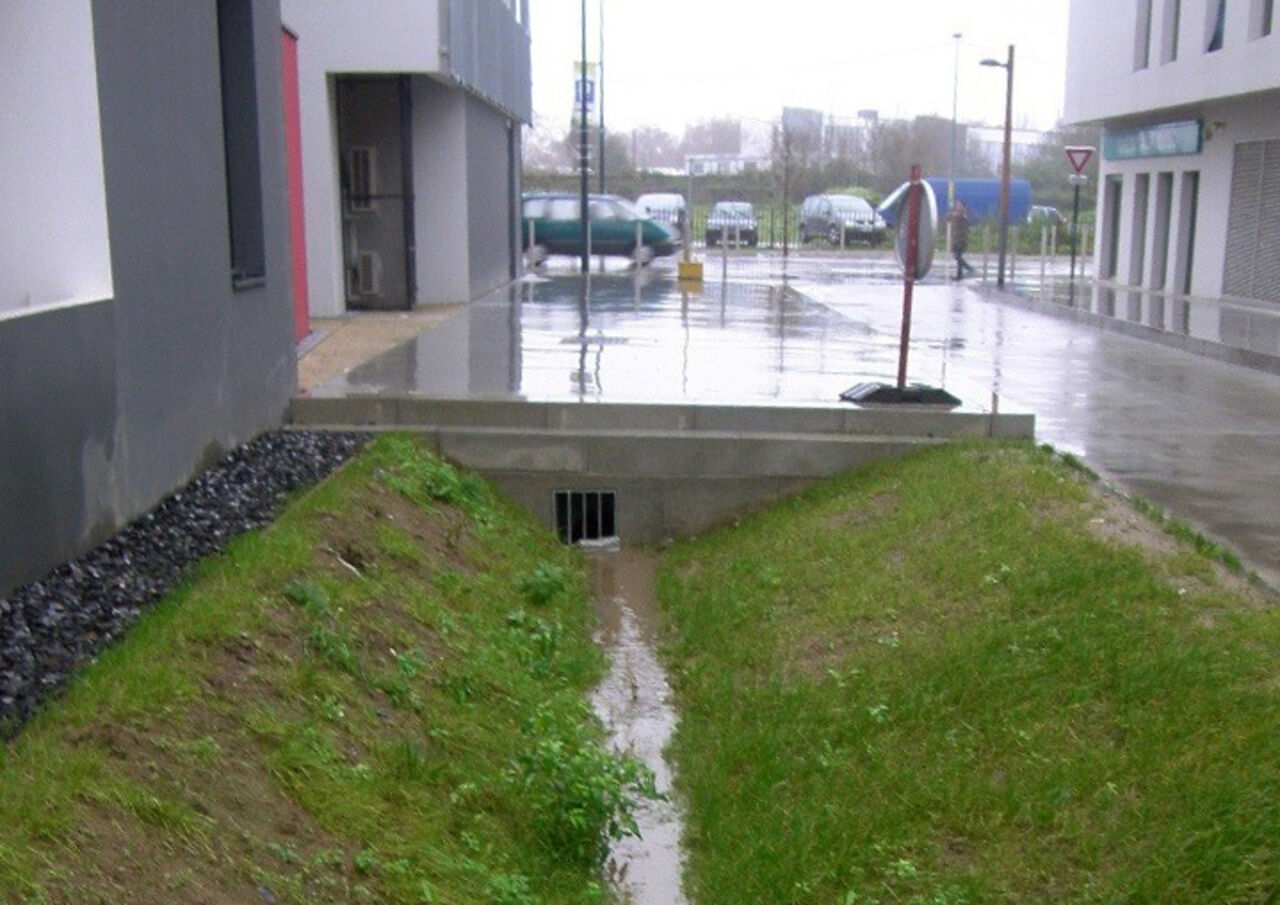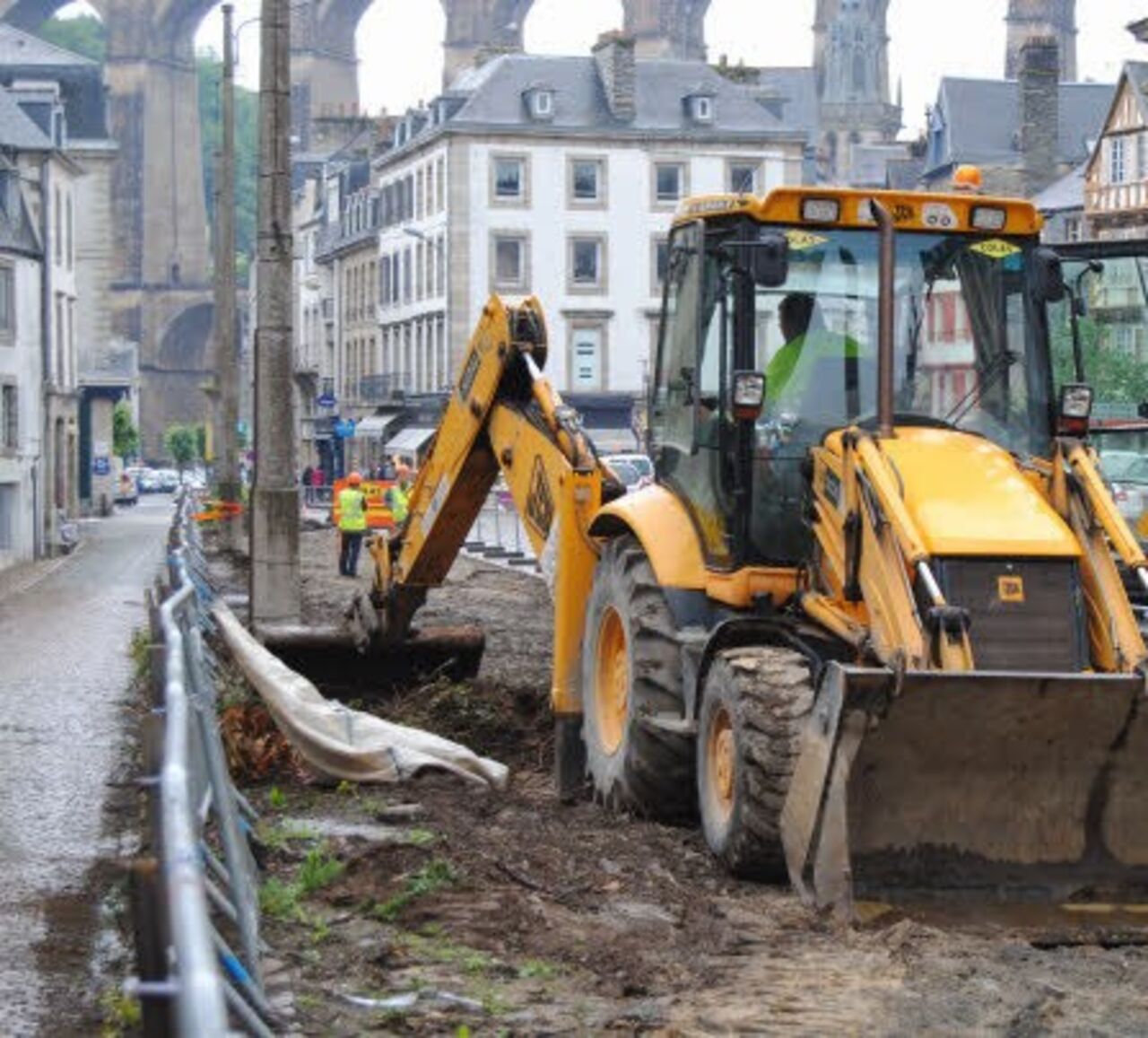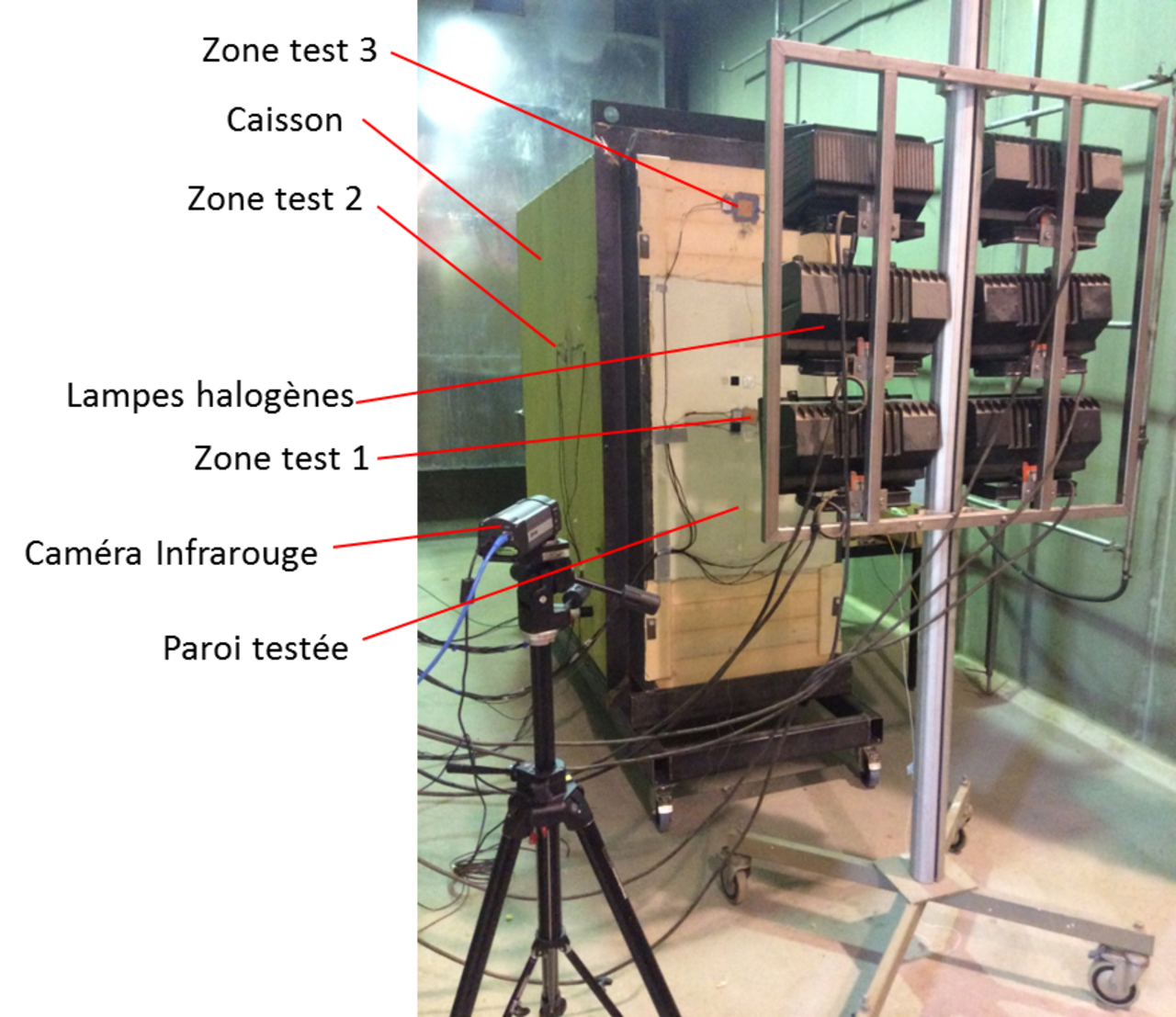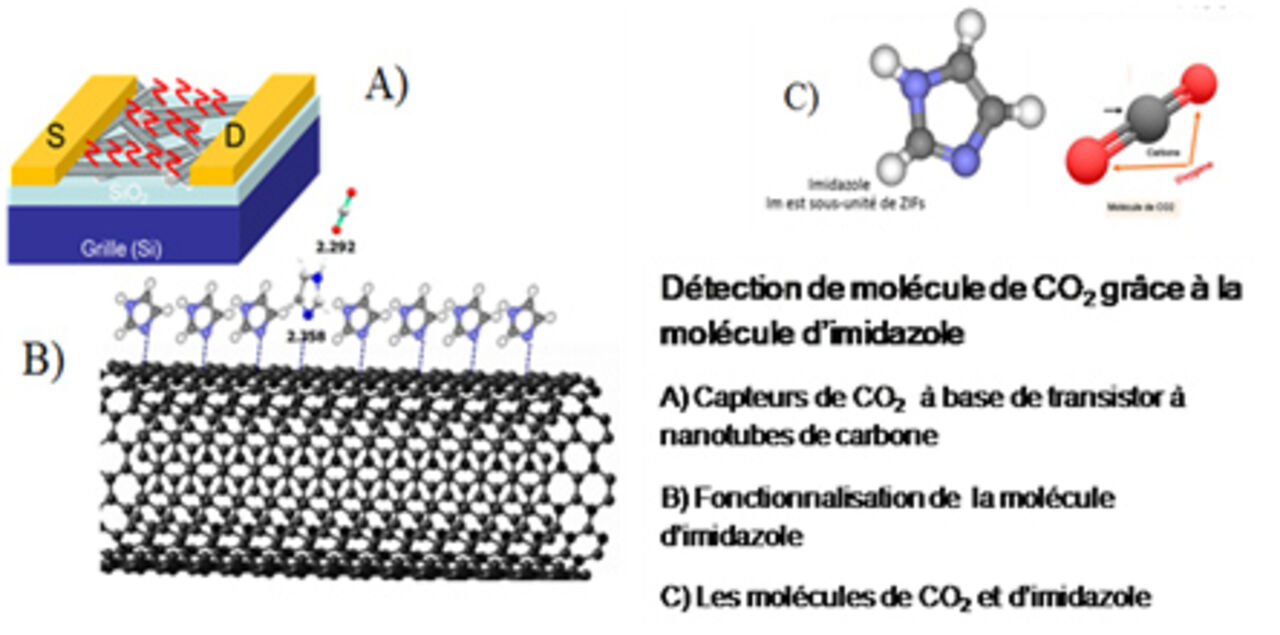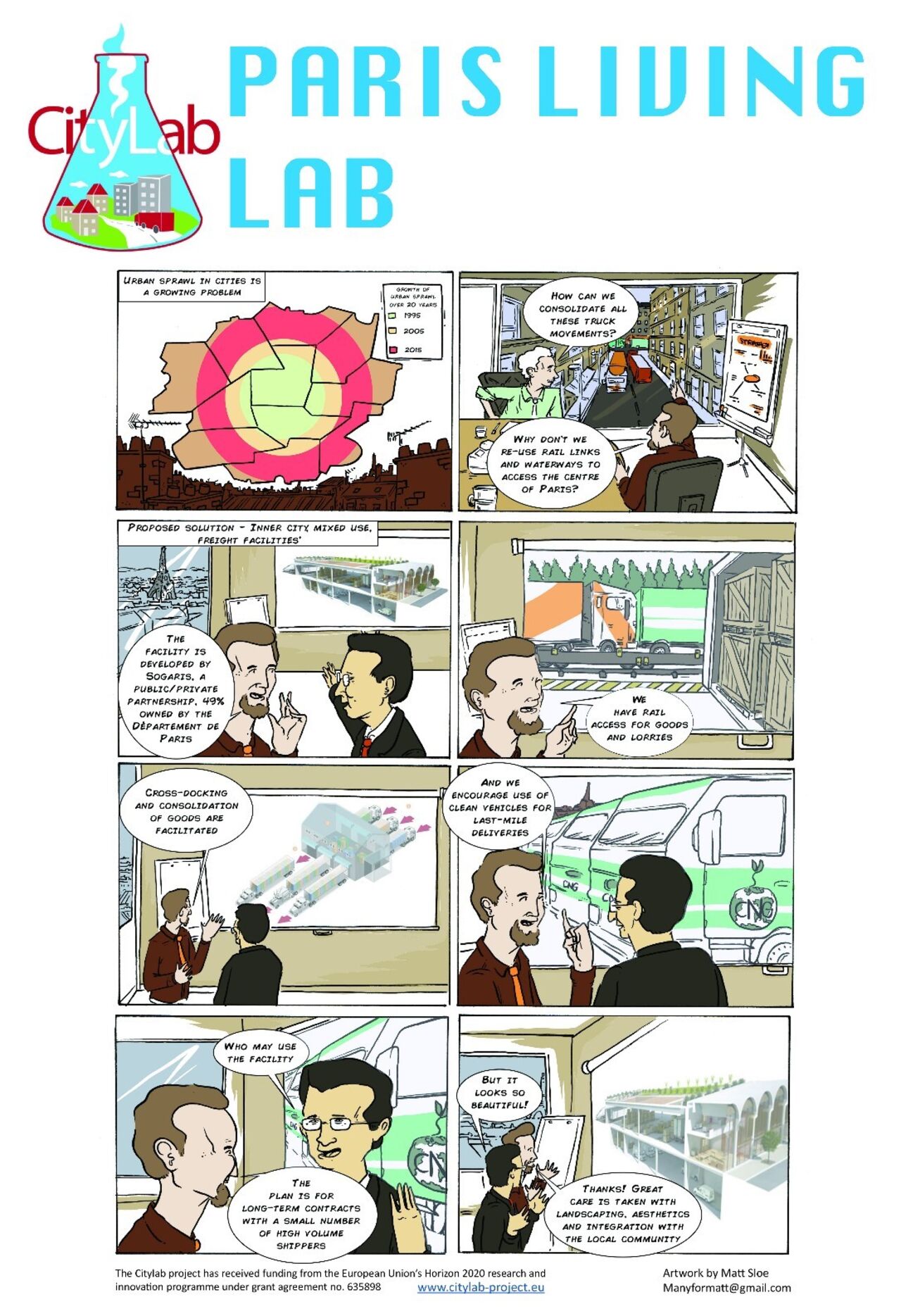Contributing to sustainable development
Urban areas both generate and experience multiple problems that interact with each other. Urban land use planning therefore requires collective thinking, with multi-domain approaches based on a large amount of varied data. IFSTTAR is actively engaged in addressing this challenge through its involvement in networks and the production of tools that are tailored to address this complexity.
So, whether it is for stormwater management, the maintenance of their road network, or the management of mobility and logistics within their area, local authorities need knowledge and tools to inform and facilitate their decision-making. IFSTTAR is committed to actively responding to these needs by developing tools and knowledge that will enable local and regional authorities to respond to the major challenges of the ongoing energy, ecological, climate and demographic transitions.
The MATRIOCHKAS Project (ONEMA – Agence de l’Eau Loire-Bretagne)
To cope with the effects of increasing urbanisation, local authorities are changing stormwater management methods making greater use of facilities that permit the storage or seepage of stormwater runoff from urban surfaces. Traditionally designed in a centralised manner, the structures in question (retention basins) are increasingly being installed near the places where runoff is generated (green swales, trenches, etc.). The stormwater that enters these structures becomes an environmental issue because of the impact of the micropollutants it carries on the quality of aquatic environments and soils.
The Matriochkas project focused on evaluating the performance of these structures, from the hydrological and purification point of view, through experimental monitoring of 2 basins and one swale in the Nantes Metropole area and 2 pilot swales installed by the CSTB. The observations, which were shared with those made in Île-de-France (Roulepur) and Lyon (Micromegas), showed the value of alternatives that encourage rainwater seepage with regard to reductions in both the volume and concentrations of micropollutants, mainly metal trace elements. A diagnosis tool based on the analysis of geographical data has also been deployed at the urban area level to prioritize structures on the basis of the pollution that could affect them.
OGSEER - Optimisation of the Socio-Economic and Environmental Management of Maintenance Works on a Network, by geographical analysis of the area and determination of the impacts of worksites
OGSEER, an IFSTTAR internal Targeted Initiative project, aimed to study the socio-economic and environmental impacts of transport network maintenance projects in order to identify the most appropriate decisions, taking into account the interests of both society and users. The research resulted in several advances regarding the scheduling of maintenance work on a transport network:
• Extensive analysis was carried out to identify usable open data databases. A dictionary of data sources with format specifications has been prepared.
• A "comprehensive" database architecture was developed to host different sources. Links between different sources were established for more efficient exploitation.
• A computer tool has been created in order to retrieve the various databases, carry out the necessary conversions and transfer them to the central database.
• Based on the collected data, an indicator calculation demonstrator was developed. Thus, two "environmental noise" indicators (defined in the EVITA project) were computed by using a noise propagation simulator.
• Analyses were carried out using statistical and geographical analysis tools. The thematic analysis of the area covered ("population, trips, economic activities, etc.") makes it possible to characterise the importance of a transport link in order to prioritize works. An expert assessment was conducted on behalf of a manager to evaluate and measure the socio-economic role of a transport route.
The Built2Spec project
IFSTTAR, as an IRSTV member, participated in the Built2Spec project funded by the European H2020 programme. This 4-year project (2015-2018) was coordinated by Nobatek and brought together 20 partners from 8 countries. Built2Spec aimed to apply a set of innovative technological advances to facilitate self-inspection, non-destructive testing, management and quality checking, in order to help construction stakeholders achieve the EU's energy efficiency objectives and implement new standards for more sustainable construction.
Through its experience in the field of infrared thermography and the optimisation of the energy performance of buildings, the SII laboratory (COSYS department) has been involved in studying the problem of the in-situ thermal characterisation of shells. Work was carried out in a climate-controlled chamber (providing variations in environmental conditions during testing that reflect natural conditions). A cabinet containing a temperature-controlled heating system was built into the enclosure in which walls of various types were installed. In collaboration with the Bordeaux-based I2M laboratory, a range of instrumentation options were studied, such as using a Peltier module as a fluxmeter as well as the use of active methods to identify the thermal properties of walls.
The SUPER BQR project: Development of sustainable materials for housing: summary, characterisation and modelling
The Super BQR project brings together teams from the MSME at UPEM and LISIS at IFSTTAR to design new functionalised carbon nanotube (CNT)-based CO2 gas sensors and to model two-phase turbulent flows at separate interfaces in order to describe the structure of new coatings for use on future housing materials. For the sensor (LISIS), carbon nanotube-based sensors have a very high sensitivity to a large number of gases such as NO2, NH3, CO and CO2. This is an important feature in fields as diverse as environmental monitoring, agriculture, human safety and medicine. The difficulty lies in distinguishing between the gases (selectivity).
As a result of this project, it was possible to detect a specific gas by applying the principle of functionalisation - i.e. the creation of trapping sites on the carbon nanotubes. The imidazole molecule was chosen because of its good affinity with CO2. It was possible to design a new sensor that provides good CO2 detection which, thanks to the combination of carbon nanotubes and imidazole, is both sensitive and inexpensive. Research is in progress to improve the selectivity of transistors based on functionalized carbon nanotubes.
The CITYLAB Project
CITYLAB is a European project that ran from 2015 to 2018 as part of the European Commission's Horizon 2020 programme. The project was led by TOI, the Norwegian Institute of Transport Economics. CITYLAB is based on the "living lab" concept, which can be defined as a forum for consultation, design and implementation that provides support for a project. Seven Living Laboratories were designated in Oslo, Paris, Rome, London, Brussels, Amsterdam and Southampton. The City of Paris was also involved in the project and participated in close partnership with IFSTTAR.
In each of these laboratories, an innovative urban logistics experiment was conducted, evaluated and, if deemed successful, suggested to other European cities. For Paris, the urban logistics initiative conducted and evaluated within the framework of CITYLAB was the "logistics hotel", an innovative building catering for urban activities (offices, housing, business and leisure) and logistics. Two buildings were involved, one which was already operational (the Beaugrenelle logistics space) and the other under construction at the time of the CITYLAB project (it was opened in June 2018). This is the Chapelle International project, in the north of Paris. One of CITYLAB's main focuses has also been the establishment of an Urban Freight Data and Trends Monitoring Centre, which was run by the IFSTTAR team. This Monitoring Centre has produced three deliverables, in 2016, 2017 and 2018, on data and trends relating to logistics sprawl, e-commerce deliveries and service-related mobility.
